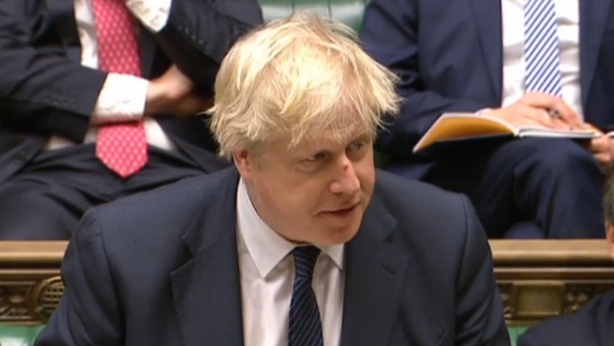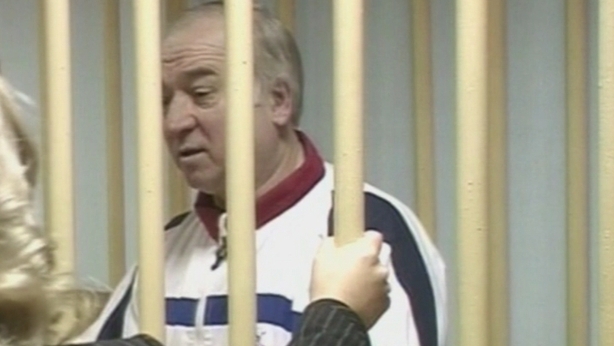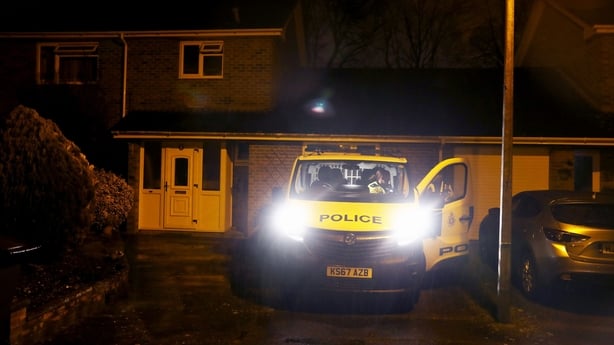Britain’s Foreign Secretary Boris Johnson has vowed that the UK will mount a "robust" response if evidence of state responsibility emerges after a Russian double agent was left fighting for his life following suspected exposure to an unknown substance.
Sergei Skripal, 66, was found unconscious in Salisbury, Wiltshire, along with his 33-year-old daughter Yulia shortly after 4pm on Sunday.
They are in a critical condition.
Addressing the UK House of Commons about the "disturbing incident", Mr Johnson noted that this case had "echoes" of the death of Alexander Litvinenko, a Russian dissident who was fatally poisoned in London in 2006.

He told MPs: "While it would be wrong to prejudge the investigation, I can reassure the House that should evidence emerge that implies state responsibility, then Her Majesty's Government will respond appropriately and robustly."
In a fresh sign of the deterioration in relations between the countries, Mr Johnson also claimed Russia is "in many respects a malign and disruptive force".
The Russian Embassy said it was "completely untrue" to suggest the country's special services were involved in the incident.
It criticised Mr Johnson for speaking "in such a manner as if the investigation was already over"
It comes after Scotland Yard said the investigation is being led by the counter-terrorism policing network because of its "specialist expertise."
It added: "It has not been declared a terrorist incident and at this stage we are keeping an open mind as to what happened"
Russia said it has no information on Mr Skripal, and said that the incident was "tragic".
"We see that such a tragic situation happened," President Vladimir Putin's spokesman Dmitry Peskov told journalists.
"But we don't have information about what could be the cause, what this person did."
Asked if Russia was ready to cooperate, Mr Peskov said that "Moscow is always ready for cooperation".
He said he did not know whether Mr Skripal was still a Russian citizen.
Mr Skripal was sentenced to 13 years in prison for espionage in 2006, before being granted refuge in Britain in a high-profile US-Russian spy swap in 2010.

The case has evoked parallels with poisoning of an ex-Russian spy Alexander Litvinenko in London with radioactive polonium.
Asked about the link being made in the media between Skripal and Litvinenko’s death, Mr Peskov said: "It didn't take them long."
Read More:
- Former Russian spy exposed to unknown substance in UK
- Salisbury an unlikely location for 007-like speculation
- Who is double agent Sergei Skripal?
Last night, officers "secured" a number of scenes - including the Zizzi restaurant on Castle Street and the Bishop's Mill pub in The Maltings.
A CCTV image of a man and woman walking steadily through an alleyway between the Zizzi restaurant and the bench near a shopping centre where Mr Skripal was found is believed to be of interest to police.
We need your consent to load this Facebook contentWe use Facebook to manage extra content that can set cookies on your device and collect data about your activity. Please review their details and accept them to load the content.Manage Preferences
Metropolitan Police assistant commissioner Mark Rowley confirmed his specialists were supporting the investigation.
He said: "If you look back at other cases like Litvinenko, if necessary we will bring that investigation into the counter-terrorism network. At the moment the key is, though, to get to the bottom of what caused this."
He added: "I think we have to remember that Russian exiles are not immortal, they do all die and there can be a tendency for some conspiracy theories.
"But likewise we have to be alive to the fact of state threats as illustrated by the Litvinenko case."
Mr Skripal and a woman in her 30s, believed to be his daughter Yulia, were found on Sunday slumped on a bench near a children's play area about 100 yards away, close to The Maltings shopping centre.
They are both critically ill after being exposed to an unknown substance.

While the incident remains shrouded in mystery, it comes at a time when ties between Russia and the UK are under severe strain.
Former Scotland Yard counter-terror chief Richard Walton said: "The investigation must take its course but if this is state-sponsored terrorism, and it looks entirely possible, then it will have grave consequences for UK-Russia bilateral relations.
"Relations that are already at breaking point. The UK cannot and will not tolerate state-sponsored terrorism of any kind."

